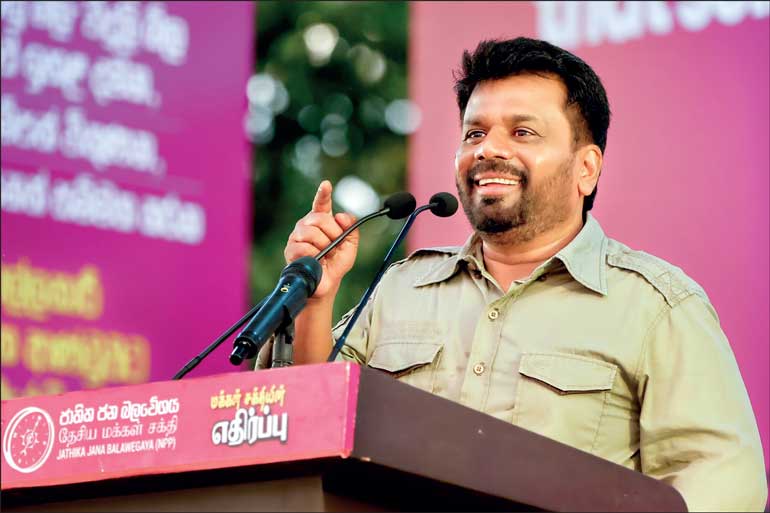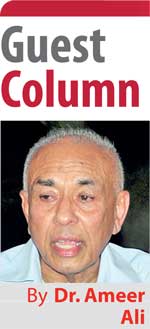Wednesday Feb 18, 2026
Wednesday Feb 18, 2026
Wednesday, 3 January 2024 00:20 - - {{hitsCtrl.values.hits}}

NPP promises complete breakaway from the past – ‘social revolution’ to change ‘political culture’
 “Good governance never depends upon laws, but upon the personal qualities of those who govern. The machinery of government is always subordinate to the will of those who administer that machinery. The most important element of government, therefore, is the method of choosing leaders”.
“Good governance never depends upon laws, but upon the personal qualities of those who govern. The machinery of government is always subordinate to the will of those who administer that machinery. The most important element of government, therefore, is the method of choosing leaders”.
2024 is going to be a year of elections, but how many and in what order are uncertain, although President RW would prefer his position to be legitimised first. This is why there is a frenzy of meetings and discussions among various parties to look for winnable candidates and to form coalitions if necessary to capture RW’s position. Hilariously, one of the parties, the SLPP of the Rajapaksas, that is currently firing the shots at the RW led regime, has laid down ten conditions for candidates seeking that party’s nomination. Several of those conditions such as, smart agricultural initiatives, poverty alleviation and job creation, economic growth and investment attraction, cost of living reduction and international level education, are a tacit admission that the SLPP regime failed to achieve any of the conditions during the years when the Rajapaksas were in power. It was their reckless economic and financial mismanagement with borrowed funds to finance white elephant projects, to provide fiscal favours and kickbacks to family members and party parvenus, and to subvert public institutions including the constitutionally independent CBSL to gain political mileage that led to rampant corruption and nepotism in public administration, that ultimately bankrupted the Treasury, buried the economy in debt and left the nation with no alternative but to approach the IMF for funds and advice. That same SLPP is now eyeing on a rupee multi-billionaire businessman with his accumulated wealth kept safely abroad to be entrusted with the task of rebuilding the shattered economy and bring prosperity to the people. One should remember that the talent and skills required to manage and succeed in one’s private business is not necessarily correlated to that required for managing a national economy. While President RW promises a Valhalla in 2048, the SLPP seems to promise an Eldorado during its next term of Government. Who are they hoodwinking?

Whether it is going to be a presidential, general, provincial or local government election the choice before the people is starkly evident. It is a choice between continuing the old order structured on an ethno nationalist edifice with its supreme ideal of maintaining Sinhala majoritarianism while promising to renegotiate some aspects of the IMF’s economic agenda, or, eradicating the old order and creating a new one based on secular democracy entrenched in a secular constitution and reprioritising the IMF’s agenda with a positive bias towards revitalising the domestic real economy and ensure economic justice to all. It is going to be an epochal choice confronted by a new generation of voters that had already expressed their preference in 2022 via the Aragalaya.
NPP promises complete breakaway from the past
Of all the parties that are on the run it is only the NPP, an ideological coalition of more than 20 groups under the leadership of JVP’s AKD, that promise a complete breakaway from the past. When AKD talked about a “social revolution” to change the “political culture” of this country, he could not have meant anything else other than a paradigmatic shift to create a new order. The fact that he is appealing to voters to give his team a chance to materialise that ideal itself shows the NPP’s political maturity in the context of the JVP’s past revolutionary baggage. All the other parties, whether they contest individually or as a coalition, want to maintain the old paradigm. Even RW for that matter, who is constantly claiming that his way, whatever that means, is the only way for salvation, and therefore, wants all communities to support him, is playing hide and seek when it comes to destroying the old order. For instance, when he addressed the attendees at a Muslim College function on 27 December at Guruthalawa, he vowed to “safeguarding the Sinhala identity, religion and culture” while promising to end discrimination against other ethnic and religious communities, an old chorus repeated by every political leader at public gatherings since independence. With the dominance of the saffron robe in the old order the President would obviously not risk alienating that sector by criticising that order. Only NPP’s pronouncements sound close to achieving a paradigmatic shift.

Domestic market needs to be cleansed of political rigidities
Yet, it is regarding the IMF’s role in the economic trajectory of Sri Lanka that the NPP seems to draw a line between itself and other parties. Recently, the CBSL Governor has warned that “any deviation from (the IMF) path would bring detrimental and irreversible consequences”. That may be so and all other parties except the NPP would agree with him, because they all want to keep the economy open and be driven by unhindered market forces so that free competition would encourage inward foreign investment and develop an export dependent economy. But apart from the already built-in detrimental effects emanating from corrupt domestic governance, which IMF itself is aware of, has the respectable Governor any solution to protect such an export dependent Sri Lanka from the external shocks of the global economy? The growing global economic pessimism engendered by the two wars on the one hand and large-scale devastations caused by unpredictable natural disasters on the other, should not be underestimated, and they need internal shock absorbers to minimise negative effects. Small economies with wide income inequalities and population pressure cannot afford to move with the ebb and flow of the global economy, and therefore, local economies need to be restructured at least to achieve self-sufficiency in basic needs. The NPP’s refocus on the domestic real sector therefore makes good sense. To make that sector vibrant and productive the domestic market should be cleansed of its current institutional and political rigidities created by the old order. Perhaps it is with that objective that the NPP may renegotiate and reprioritize the IMF’s stipulations. This is not to reject the IMF totally and not to operate a close economy as some critiques may argue.
Sri Lanka, unlike some other developing economies is naturally resourceful. It is therefore not a beggar that cannot choose. With an enlightened leadership it can pick and choose its benefactors. Unfortunately, over seven decades of political parochialism driven by ethno nationalism, the old order created a ruling elite and endowed it with an open licence to manage the country’s resources without any accountability. That licence led to mismanagement and reached a crescendo during the last few years. Today, a new generation of voters who are not only politically educated but also equipped with all the paraphernalia required to remain in touch with events happening outside the country, seem to have awakened to the reality of effecting a historic change in 2024. The Aragalaya if anything, signalled this awakening. Demographically also the votes of this new generation can tip the balance in favour of the team they think would be capable of remaking the country through a social revolution. Public opinion indicates that the NPP could be a promising candidate of preference. However, there are also saboteurs who could cause ruination and chaos by calling for a total boycott of the next election. That would be a political suicide.
(The writer is attached to the Murdoch Business School, Murdoch University, W. Australia)